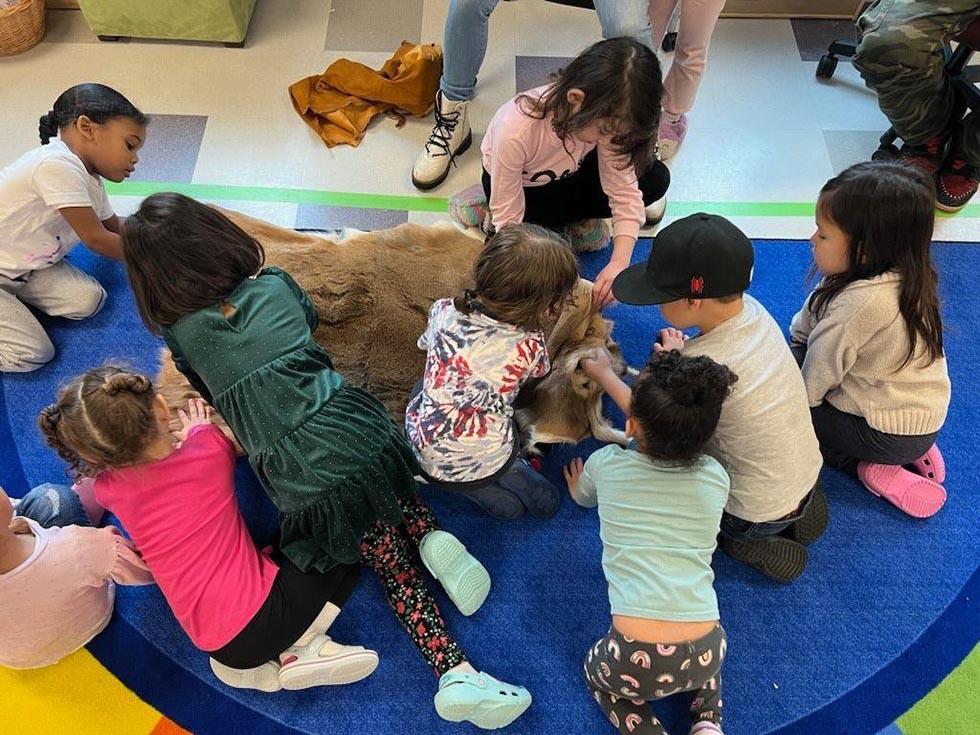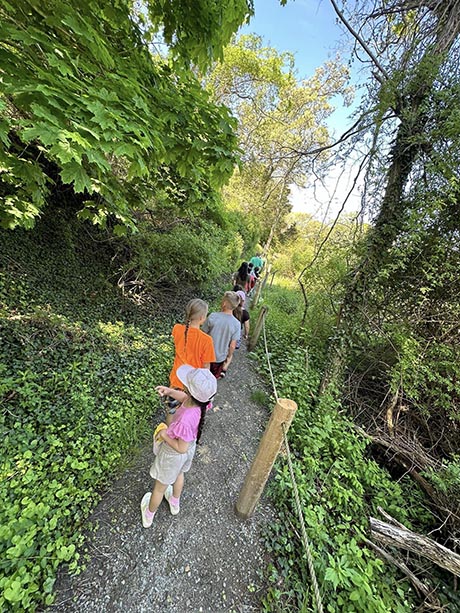
By Nitana Greendeer, Head of Weetumuw School and Mashpee Wampanoag Tribe Councilwoman
The 9th year of Weetumuw School is in full swing! Our new students have been eagerly learning their way around the classroom, and the returning, experienced students have stepped confidently into roles as leaders with the guidance of their dedicated teachers.
Weetumuw School is a Wôpanâak culture and language school, autonomously operated by the Mashpee Wampanoag Tribe. Our school houses two classrooms: Mukayuhsak Weekuw (The Children’s House) for preschool and kindergarten (ages 2.9–6) and Wushkeenuneak Weekuw (The Young People’s House) for lower elementary students (ages 6–9).
Our innovative school model, which we’ve dubbed “Wôpessori,” weaves together two complementary approaches that support high outcomes and the decolonization of our people:
- Wampanoag culture-based pedagogy designed by Mashpee Wampanoag community members who have dedicated their lives to researching and learning in order to create the conditions and experiences in which Indigenous children can thrive.
- Montessori pedagogy, rooted in 100 years of research, correlated with strong and lasting academic and social-emotional outcomes for children across all economic, racial and cultural identities. Montessori prioritizes individualized learning that follows each child’s pace and strengths; developing independence, responsibility and curiosity; and a sense of connection to the community beyond themselves.
With these two important and affirming pedagogies in mind, our teachers model and instill the values of respect, love, bravery, humility, gratitude, wisdom, and honesty. As part of their schooling, Weetumuw School children move and learn throughout their homelands, led by community members, to remind them of our resiliency as tribal people – having remained in our original homelands for thousands of years, despite centuries of pressure and efforts to remove us. They are taught and shown that this land where we were created, and our culture that has grown from it, is our birthright, and we must protect that right for the next seven generations. The children learn ceremony, our traditional teachings, and they understand the high expectations that we have for them as our future leaders.

These cultural teachings also complement their academic Montessori lessons when they do things such as forage for mushrooms as part of a botany lesson, create patterns for beadwork as part of an addition or multiplication lesson, when they compare sentence structure between Wampanoag language and English, or when Montessori works are created using quahog shells, animal hides, or traditionally woven textiles.
The Weetumuw School offers all Wampanoag families access to this transformational education that is culturally-relevant and identity-affirming — regardless of their economic means. We do not charge tuition but invite every family to contribute through donations, volunteering in the classroom, and investing their time and talents to the school. We have sustained our lean operating budget through support from the tribal government, donations, grants, and as a Wildflower Montessori school. But as we envision the future of Weetumuw School — growing services for students and opportunities for teachers and working toward long-term sustainability – it is more important than ever to broaden our circle of collaboration to a greater community. If you are able to contribute to the wonderful work put forth by our students, teachers, and community, please consider a donation. We are grateful for your support in any way that it comes, whether a small or large gift, a one-time donation, or an ongoing sponsorship.
For more information on ways to support Weetumuw School, or assistance with your sponsorship, please contact Nitana Hicks Greendee.

